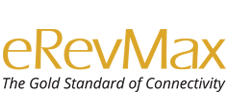Why hotels can’t afford to ignore business intelligence in 2015- Part 1
What is Revenue Management?
Newshound: Trends and Reports – Hotel Online Distribution
GHOTEL hotel & living selects RateTiger for smart online room distribution
German hospitality group GHOTEL hotel & living has selected RateTiger’s industry leading Channel Manager to maximise its distribution reach for its unique accommodation offerings by updating distribution channels efficiently in real-time.
http://www.eglobaltravelmedia.com.au/z-more/technology-more/ghotel-hotel-living-selects-ratetiger-for-smart-online-room-distribution.html
The Future of Hotel Marketing: Social Media Synopsis
Hotel chains that are open to 24/7 online social communications with their fan base can sense the power of a free flowing exchange of ideas, and capitalize on a low-cost marketing channel solution. Communication with customer base via social media channels is now expected as standard, whether these platforms are utilized to shape brand image, facilitate user-generated content or compliment a targeted pay-per-click campaign, social media is vital to the success of a hotel property.
http://hotelexecutive.com/business_review/3441/the-future-of-hotel-marketing-social-media-synopsis
Data transformation key for revenue managers
As more data becomes available, revenue managers must be able to filter and make sense of only the best information in order to achieve their goals, sources said during a Hospitality Sales and Marketing Association International (HSMAI) webinar. “Some people may say that we’re drowning in data, but I think it’s more accurate to say that we’re drowning in information,” said Kevin Coleman, partner and COO at Intelligent Hospitality, a hotel business intelligence company that provides reporting and analytics for hotel sales, marketing and revenue management.
http://www.hotelnewsnow.com/Articles.aspx/10263/Data-transformation-key-for-revenue-managers
A Call to Arms: How to Shift Market Share from the OTAs to the Hotel Website
This year, the hospitality industry is in for a lot of pain. OTA dependency continues to plague the hospitality industry, despite gains in the past three years and positive trends in all three industry indicators. This isn’t new. What’s new is the pain to the bottom line inflicted by the fat commission checks hoteliers are now paying Expedia and other OTAs, due to the widespread adoption of Expedia”s and Booking.com”s agency model in the U.S.
http://www.hospitalitynet.org/column/global/154000392/4060290.html



